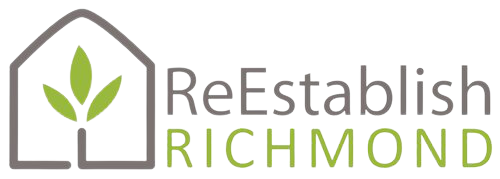Moving the Vaccine Effort Forward Among the Migrant Community
As Virginia officials intensify efforts to bring COVID-19 vaccines to marginalized communities, ReEstablish Richmond volunteers and staff have messages and experiences that might speed the urgent effort.
Many recommendations reflect common sense: Take the vaccines to the people, for instance. Don’t wait for the people to come to you. Others mirror years of practice in helping families adjust to a new city and country. “I know the only reason Congolese people listen to me is because we have a longstanding, trusting relationship,” said Leslie Saul, a retired registered nurse who has worked with a family of Rwandan refugees and their friends since 2016. “If I just knocked on their door [as a stranger], they might not even answer.”
Saul is one of four people interviewed recently about their challenges and successes in helping refugee families navigate the complex world of COVID-19 vaccinations. Not only did the four encounter technological hurdles, a problem familiar to even longtime Virginians as they struggled through the early days of vaccine availability. They also came across language barriers specific to immigrant populations. And they ran up against logistical concerns over transportation, inconvenient time slots, and other problems experienced by many low-income citizens.
In addition to Saul, the group included Sister Tiberh Zerezghi Hagos, an Ethiopian native who serves as director of human concerns for Saint Elizabeth Catholic Church; Laura McLaughlin, a data and analytics consultant who was drawn to refugee work after a 2018 stint volunteering with displaced persons in Greece and the northern-Aegean island of Lesbos, and Megan Essex, a 2020 social work graduate of James Madison University who is spending a year at ReEstablish Richmond through the AmeriCorps public service project.
The efforts of Saul and Sister Tiberh, who focus primarily on Richmond’s Congolese population, have included convincing members to accept a vaccine, resolving doubts, and coordinating appointments. McLaughlin has provided similar assistance for the Afghani family she mentors and for their friends, as well as coordinating a ReEstablish Richmond project offering vouchers for Lyft rides to vaccine appointments. And Essex has served a broad swath of refugee families by surveying first-shot recipients and by helping the Virginia Department of Health develop informational, COVID-19 vaccine videos in five languages: Swahili; Arabic; Dari, spoken primarily in Afghanistan; Nepali, and Kinyarwanda, the language of Rwanda and the Eastern Democratic Republic of the Congo.
While the level of resistance to receiving vaccines varies among refugee populations, every group has questions. Is it safe? How effective is it? What are the potential side effects? Some refugees have seen videos or heard rumors suggesting that the shots cause infertility or loss of muscle control. Some says they trust their religious faith to protect them.
To counter misconceptions, the volunteers offer factual information and tangible support. “Look at me. I am vaccinated. Nothing happened to me,” Sister Tiberh says. To those who are afraid, she counsels, “I will go with you. Someone will go with you.”
Saul emphasizes the dangers of not getting vaccinated through practical questions such as, “What will your grandchildren do if you get sick and die? Who will care for them?” To a Congolese friend electing not to get vaccinated, she might say, “I’m sad that I won’t be able to visit you.” When accompanying one of the refuges to their vaccination, she makes sure to text a photo of the event to others who might be wavering. After a trusted person such as a pastor is vaccinated, she urges the recipient to spread the word.
When vaccines first became available last winter, the volunteers often experienced frustration in lining up appointments. Lack of cell phones or technological skill complicated the effort. When the mom with whom McLaughlin was working did not have an email address to report to the local health department, she tried using a daughter’s address. That confused the system when the daughter also wanted a vaccination. At the outset, “it was all fairly convoluted,” she said.
Many refugees work in high-risk settings such as factories, grocery stores, or gas stations. Such employment often involves fixed hours with little flexibility. When vaccination events were inconveniently located or held during normal working hours, refugees often were unable to schedule an appointment, even if they wanted one.
In recent weeks, the situation has improved, the women say. Even if belatedly, state and local officials appear more focused on the communities of color and lower-income populations proven to be most vulnerable to infection. Mobile units are bringing vaccines to neighborhood locations. More businesses such as CVS or Walmart are providing services, resulting in more convenient hours.
“They didn’t even want to listen to us or answer our calls and emails in the beginning,” said Saul, who was concerned about the lack of focus on those with the greatest need. She applauds improvements, while wishing they had come sooner.
“From a local standpoint, I have seen people make efforts to create a sense of equity,” said Essex. While she has not seen “huge progress or perfection,” she is encouraged that “I’ve seen efforts made toward it.”
